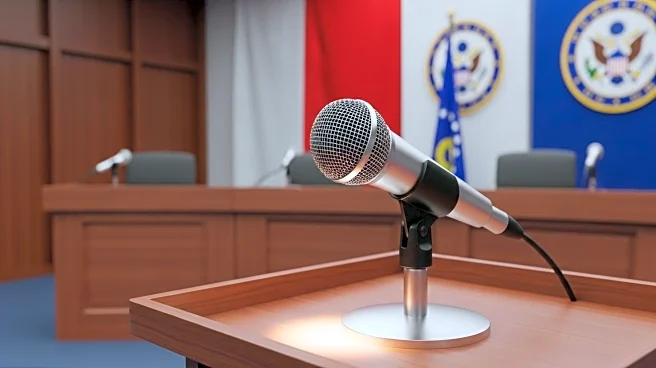What's Happening?
The Pentagon has introduced a new requirement for reporters to sign a pledge that restricts them from gathering any information, including unclassified reports, unless it has been authorized for release. This move has sparked concerns about press freedom and the ability of journalists to hold the Pentagon accountable. The pledge threatens to revoke press credentials for those who do not comply, potentially altering the way reporters like Tom Bowman cover Pentagon activities. Additionally, President Trump's executive order designating Antifa as a domestic terrorist organization is discussed, highlighting its implications for domestic extremism reporting.
Why It's Important?
The requirement for reporters to sign a pledge limiting their access to information poses significant challenges to transparency and accountability within the Pentagon. It could hinder investigative journalism and the public's right to be informed about military operations and decisions. This development may impact how the media covers defense-related issues, potentially leading to less scrutiny and oversight. The designation of Antifa as a domestic terrorist organization by President Trump also raises questions about civil liberties and the potential for increased government surveillance and intervention in domestic affairs.
What's Next?
Journalists and media organizations may challenge the Pentagon's pledge requirement, seeking legal avenues to protect press freedom. Advocacy groups could also become involved, emphasizing the importance of transparency and accountability in government operations. The executive order on Antifa may lead to further debates and legal challenges regarding its implications for civil rights and domestic policy. Stakeholders, including political leaders and civil society groups, are likely to react and engage in discussions about the balance between national security and individual freedoms.
Beyond the Headlines
The Pentagon's pledge requirement could set a precedent for other government agencies, potentially leading to broader restrictions on press access and freedom. This development may trigger discussions about the ethical responsibilities of journalists and the role of the media in a democratic society. The executive order on Antifa could influence public perception and policy regarding domestic extremism, impacting cultural and political dynamics in the U.S.









